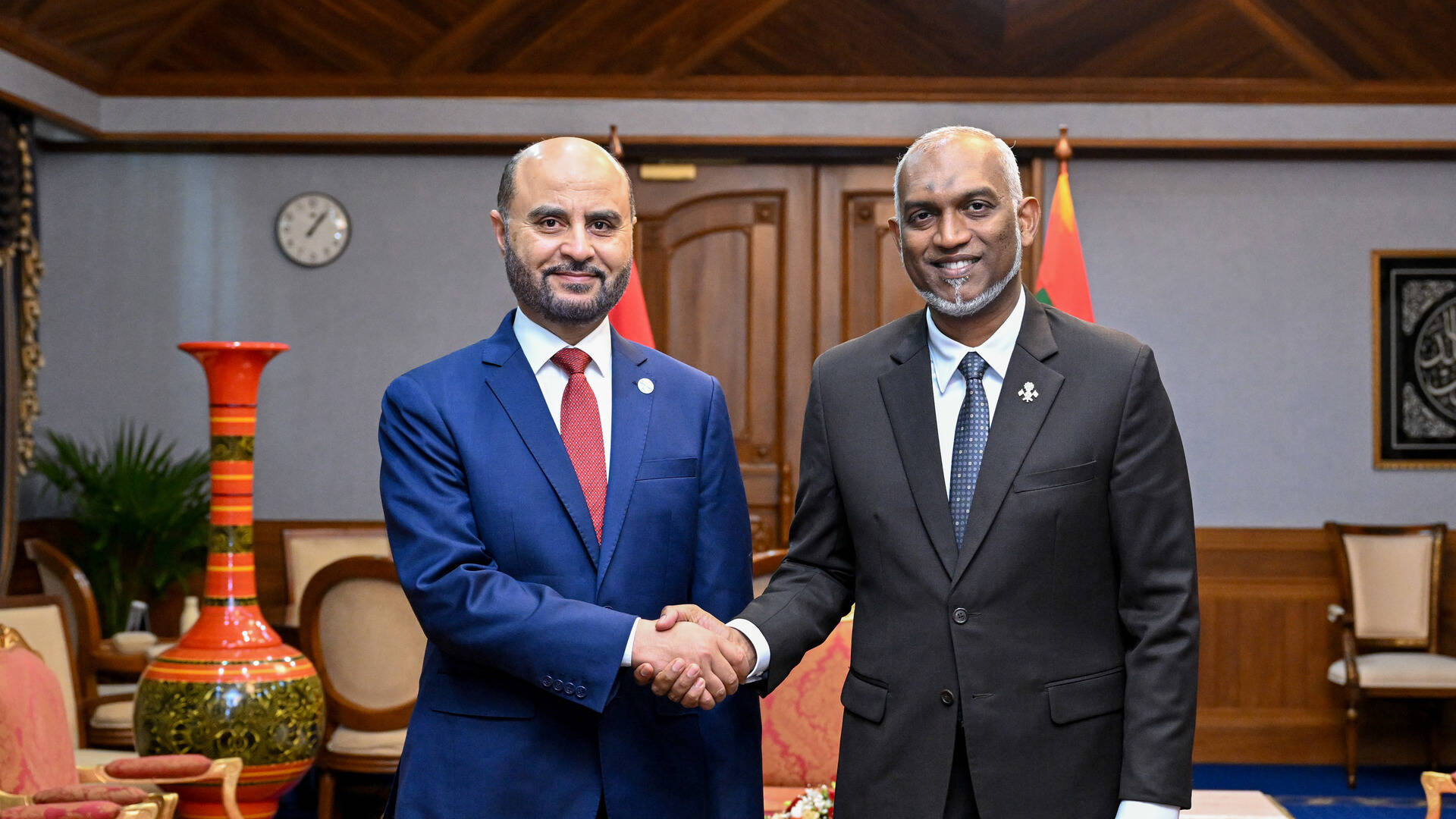We use Cookies. Read our Terms
- News
- Mission to Maldives boosts relations
Mission to Maldives boosts relations
President Alkhalifa visits the Small Island Developing State as OPEC Fund considers new projects
An OPEC Fund delegation headed by President Abdulhamid Alkhalifa visited the Maldives to meet with the authorities, attend the inauguration of the new passenger terminal at Velana International Airport and check the progress of ongoing projects.
While the Maldives are often associated with dream holidays, the Small Island Developing State (SIDS) is heavily impacted by climate change and rising sea levels are an existential concern.
These circumstances made the OPEC Fund’s visit even more urgent. In his meeting with the head of state, Mohamed Muizzu, President Alkhalifa reiterated the continuous support for the country. The new Islands Resilience Facility, launched in May, together with a dedicated SIDS strategy will allow the OPEC Fund to significantly increase its impact by combining funding with capacity building and knowledge sharing.
Dating back to 1977, the OPEC Fund has provided 24 loans to the Maldives for a total amount of US$223 million. While the funding is spread across various sectors, the engagement in water & sanitation stands out as the OPEC Fund is the largest international contributor to this sector. On Kendhoo island the delegation saw a water supply, sanitation and solid waste management project, co-financed by the OPEC Fund with a US$50 million loan, which aims to raise heath standards and improve living conditions for 125,000 people across 49 islands.
Scattered across some 1,200 islands, the Maldives are fully dependent on navigating the waters. Whether it’s going to school, seeing a doctor or transporting goods from one place to another, reliable sea travel is essential. And every vessel needs a functioning harbor.
To meet these needs, the OPEC Fund is currently assessing a multi-harbor upgrade and expansion project spanning 14 islands, with populations ranging from 409 to 13,759. Enlarging the capacity will create the opportunity to serve bigger boats instead of the many small vessels which presently dominate local maritime traffic. The authorities are planning to introduce ferries that will be more efficient than the individual boats currently criss-crossing the various islands.
These ferries will be locally built, which means jobs and skills development in a country that is massively dependent on tourism. The sector currently accounts for about 30 per cent of the Maldives’ GDP. This is a double-edged sword. On the one hand tourism is the biggest wealth creator in the Maldives. On the other hand, tourism - especially air travel – contributes significantly to climate change, a phenomenon that poses an existential danger for the Maldives.
Addressing the issue, the harbor expansion pays special attention to increased efficiency and reduced environmental impact. In addition, nature-based solutions will be included where applicable to address climate risk.
